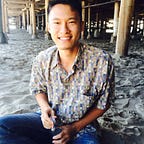Confucianism-Great Learning part 2
The Wisdoms From The Past
As a student of Confucius, Zheng Zhi, carried on his master’s torch and composed Great Learning. The text follows the tradition by vigorously citing the past. But what exactly can they do?
Strengthen Assumptions
The 3 objectives of Great Learning, illuminating moral, spreading moral, and optimum kindness, has major flaws. While optimum kindness is a take-it-or-leave-it statement, the rest relies on assumptions that isn’t clearly stated: people are good, people can be good or bad. No, they are not pedantic, the teaching has to be rigorously airtight from logical flaws.
Negating any 1 of these assumptions will result in total collapse of the whole structure, because the objectives becomes unobtainable. But we merely just identify the assumptions, how can we strengthen them?
Zheng Zhi is well aware of the issue so he sets out to fortify the structure right from the beginning.
Kang commended, ‘It is possible to achieve the bright virtue.’
Tai Jia, ‘Do not forget the heavily gift of virtue’
Di Dian, ‘It is possible to spread bright virtue’
Kang is a historical figure, Tai Jia and Di Dian are reputable writings of the past. Threading together all 3 we have our wall. The extremely brief nature of these text can cause skepticism. But these ideas are time tested, and profound ideas need not to be complicated.
Zheng Zhi essentially uses appeal to authority to strengthen the assumptions. But this is not enough. There are external forces that lay siege to the wall on daily bases. It’s such a formidable enemy that Christianity and Buddhism have been fighting against it ever since.
Cast Light On Opposing Force
The wall endures shelling from the mistakes of the past. They constantly fights for control of our castle, and tries to dominate our identity.
Kang commended, ‘Help others to let go the old and embrace the new’
Classic Poems, ‘Zhou dynasty is old, but it is able to embrace the new’
Without daily habit to reinforce the structure, the assault will slowly chip away the defensive structure of the most determined mind, which eventually will breach the defense, and leave our city in ruin with self doubt and stagnation. So let’s turn our attention to building a relentless habits.
Habit Formation
The key to unpack the following phrase and other Confucianism texts is looking at who or what said it in what context.
Tang Bathtub Carving states, ‘If one day can be new, everyday should be new, new on top of new.’
Building a habit is more of a psychological game than sheer willpower. Many fail attempts on cultivating new habits, such as gym, because most things that are associated are negative or avoidable. It almost seems like we are trying to get rid of those habits. The right way is to associate desire habits with positive unavoidable things, such as shower.
Conclusion
By today’s standard, Confucius would be considered a history phd with a minor in social science. He asked nothing less from his students such as Zheng Zhi, who elevates that tradition by standing on the shoulders of eastern giants. Their diligence and admiration to the past is seen through all over their works. That’s why it is also a good introductory to east-Asian philosophies.
I follow the Confucianism way, by far the most common question I get when people are on the edge of change is that whether if is too late. I follow with a short story about Zhou dynasty. These answers might not seem much in our daily grind but for people on the brink of self destruction, they are god sent. Hence, “…is there another way…” by escape convict Jean Valjean in The Miserbles.
In this section, Zheng Zhi use the past to reinforce the assumption, identify the opposing force, and show case habit building. But he is not done, next time, Zheng Zhi is going to introduce the core of Confucianism.
